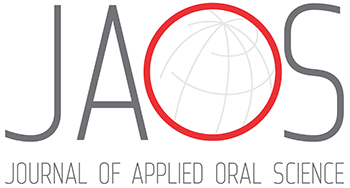OBJECTIVES: The aim of this study was to evaluate the prevalence of enamel defects and their risk factors on primary and permanent dentitions of prematurely born children and full-term born children born at Regional Hospital of Asa Sul, Brasília, DF, Brazil. MATERIAL AND METHODS: Eighty 5-10-year-old children of both genders were examined, being 40 born prematurely (G1) and 40 born full term (G2). The demographic variables, medical history and oral health behaviors were retrieved using a questionnaire and data obtained from clinical examination were recorded. The teeth were examined and the presence of enamel defects was diagnosed according to the DDE Index and registered in odontograms. Subsequently, the defects were categorized in four groups according to one of the criteria proposed in 1992 by the FDI Commission on Oral Health, Research and Epidemiology. Kruskal-Wallis, Chi-square, Kappa, Mann-Whitney tests and logistic regression were used for statistical analysis. RESULTS: 75% of total sample had enamel defects. There was a major prevalence of hypoplasia of the enamel in G1 (p<0.001). There was a significant relationship between low weight and presence of the imperfections on the enamel in G1 on the primary dentition. The logistic regression model showed that the other risk factors such as monthly per capita family income, educational level, dietary and hygiene habits, fluoride exposure, trauma, and diseases were not associated with enamel defects and caries. CONCLUSIONS: Pre-term labor can be a predisposing factor for the presence of the enamel hypoplasia in the primary dentition.
Dental enamel; Dental enamel hypoplasia; Premature infant; Deciduous tooth





